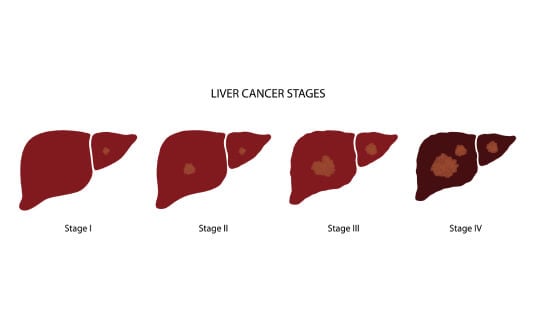Liver transplantation is a surgical intervention when a patient is transplanted liver fragments from a live or recently deceased donor. The operation is required in cases where other therapeutic measures aimed at restoring the function of one’s liver are ineffective or unpromising.
Since transplantation is a complex operation, it is better to conduct it in the hospitals of developed countries, because a qualitatively performed surgery gives a person a better chance of survival.
Indications for liver transplantation
Indications for liver transplantation are chronic diffuse organ diseases with a prognosis for life of less than 12 months. The main indication is cirrhosis, which develops as a result of viral (hepatitis C), autoimmune or alcoholic hepatitis.
Rarer indications are:
- Irreversible damage to the liver against hepatitis B or D
- Toxic hepatitis caused by drugs or industrial poisons
- Congenital fibrosis of the liver
- Secondary biliary cirrhosis
- Some hereditary metabolic diseases

Liver transplantation kinds
Main kinds of liver transplantation are:
- From a deceased person
- From an alive donor
Transplantation can be as well:
- Orthotopic (own liver is removed)
- Heterotopic (own liver is preserved)
Liver transplantation from the alive donor has a number of benefits which are:
- The possibility of a planned, and not emergency surgery (the liver from a deceased person should be transplanted no later than 12 hours after his death)
- Less waiting period for the operation, as there is no shortage of donor material
- Better biological compatibility of tissues, because a relative of the patient usually becomes a donor
Donor’s liver completely regenerates within several months. He usually has no negative health effects.
Prognosis after liver transplantation
Liver transplantation is a highly effective method of treatment of irreversible lesions of the corresponding organ. Although it is used only in extreme cases, when the high risk of a fatality within the next year is estimated, such patients after transplantation can potentially live for decades.
Prognosis of the life expectancy within the different time frames:
- 1 year after the surgery - 90% of patients
- 5 years after the surgery - from 75% to 85% in different countries
- 15 years after the surgery – 58% of patients in average
High life expectancy and absence of graft rejection among most patients are associated with the development and introduction of new immunosuppressive drugs. They suppress immunity and prevent rejection of the donor's liver.
Benefits of treatment with liver transplantation in Germany
22 medical institutions are functioning in Germany where one can receive liver transplantation. Surgery in this country is the most effective and safest procedure than in the developing countries. Further, intraoperative death is lower here, the risk of post surgical complications is also lower, the patients’ survival is better in the long run.
Main benefits of treatment in Germany are:
- High qualification and experience of doctors who conduct such interventions.
- Surgical clinics are equipped with the latest technology.
- High level of comfort while in hospital.
- Quality and safe anaesthesia during surgery and in the postoperative period.
- Ability to undergo rehabilitation with a gradual return of the person to the former way of life, restoration of work capacity.
Organisation of liver transplantation in Germany
To undergo a liver transplant in Germany, you need to find a specialized hospital, receive an invitation for treatment in it and an entry permit. You also need to manage a number of issues, such as transfer from the airport and around the city, accommodation, communication in a foreign country, etc.
Booking Health offers you comprehensive organization of treatment abroad. Booking Health is the international company that facilitates the selection of hospitals and the organization of medical services abroad. Our headquarter is located in Germany. We organize treatment in German and other European hospitals.
Benefits of using the Booking Health online service include:
- Choosing a specialized hospital with excellent success rates and a qualified attending physician
- Making the appointment for convenient dates
- Preliminary preparation of a treatment program without repeating previous examinations
- Getting medical care in Germany quickly (you will not need to be on a long waiting list)
- Reducing treatment costs by excluding additional fees for foreigners
- Monitoring the medical program at all stages
- Assistance in purchasing and shipping medicines
- Communication with the hospital after the completion of treatment
- Control of bills and return of unspent funds
- Organization of additional examinations, if necessary
- Insurance against complications during treatment
- Managing all organizational issues
Leave a request on the website, and we will select a hospital for you. Our patient case managers will contact you within a few hours and help you get treatment abroad.
Choose treatment abroad and you will for sure get the best results!
Authors:
This article was edited by medical experts, board-certified doctors Dr. Nadezhda Ivanisova, and Dr. Bohdan Mykhalniuk. For the treatment of the conditions referred to in the article, you must consult a doctor; the information in the article is not intended for self-medication!
Our editorial policy, which details our commitment to accuracy and transparency, is available here. Click this link to review our policies.
Sources:
Read:
Innovative solutions for the treatment of liver cancer and liver metastases







